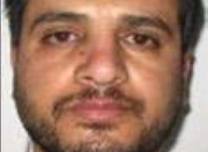 The Obama administration turned over the last remaining prisoner in American custody in Iraq to the Iraqi government on Friday, a move expected to unleash a political backlash inside the United States even as the American military draws closer to completing its exit.
The Obama administration turned over the last remaining prisoner in American custody in Iraq to the Iraqi government on Friday, a move expected to unleash a political backlash inside the United States even as the American military draws closer to completing its exit.
The prisoner, Ali Musa Daqduq, from Lebanon, is suspected of being a Hezbollah operative and is accused of helping to orchestrate a raid in January 2007 by Shiite militants who wore American-style uniforms and carried forged identity cards. They killed five American soldiers in Karbala, Iraq — one in the raid, and four others who were kidnapped and their bodies later dumped by a road.
On Friday, the military notified the families of the five soldiers that Mr. Daqduq was being transferred to the Iraqi police. Tommy Vietor, a spokesman for the White House’s National Security Council, confirmed the transfer.
“We have sought and received assurances that he will be tried,” Mr. Vietor said. “We’ve worked this at the highest levels of the U.S. and Iraqi government, and we’ll continue to discuss with the Iraqis the best way to ensure that he faces justice.”
The administration had wrestled with the decision on whether to turn Mr. Daqduq over to the custody of the Iraqi government — as the United States had done with all its other wartime prisoners — or to take him with the military as it withdraws. Republicans had called for Mr. Daqduq to be sent to the prison at Guantánamo Bay, Cuba, to face trial on charges of war crimes before a military commission.
The decision was complicated by the need to secure the Iraqi government’s permission to take any prisoners out of the country under the status-of-forces agreement signed by the Bush administration in late 2008. That accord set December 2011 as the deadline for United States troops to exit.
The Obama administration said that the government of Prime Minister Nuri Kamal al-Maliki had declined to allow the United States to take Mr. Daqduq, saying that under Iraqi law he could not be transferred at this time and had to be placed in Iraqi custody. President Obama raised the issue again when Mr. Maliki visited the White House this week, an official said.
Senator Kelly Ayotte, Republican of New Hampshire, criticized the administration’s decision.
“I am deeply troubled that the administration has apparently decided to transfer him to Iraqi custody, where he might be released or transferred to Iran — both unacceptable outcomes,” she said. “Daqduq could have been detained at Guantánamo, and this decision by the administration is yet more evidence of the need for a coherent detention policy for terrorists. Iraq’s decisions regarding Daqduq will be a major test of the evolving relationship between our two countries.”
It was not clear whether the United States might still seek to have Mr. Daqduq extradited, or whether it had acquiesced to letting the Iraqi criminal justice system handle his case. Many previous military detainees transferred to the Iraqi police have either been acquitted or released without charges.
Relatives of the soldiers who were killed in the 2007 raid said they found the decision distressing. David Lucas, of Cortland, N.Y., the brother of Pfc. Shawn Falter, one of the four men who were kidnapped and killed, said that a woman at Fort Knox had called their mother on Friday and had apologetically read her a statement about the transfer.
Mr. Lucas said he wanted to see Mr. Daqduq prosecuted and held for life in prison or even executed. Turning Mr. Daqduq over to the Iraqi police is “as good as letting him go free,” Mr. Lucas said. “It’s just a matter of time before the guy is walking the streets there. It feels like my brother’s death was in vain. It doesn’t matter, and there’s nothing you can do about it. Your opinion does not matter to what they want to do in geopolitics.”
Some conservatives had argued for simply putting Mr. Daqduq on a plane and taking him out of the country without Iraqi permission. But administration officials said that such a move would have violated Iraqi sovereignty at the moment of the war’s end, and dealt a severe blow to efforts to establish good relations with the new Iraq.
Mr. Vietor said Friday that the administration’s national security team had unanimously agreed that if Iraq had granted permission to take Mr. Daqduq from the country, he would have been tried before a military commission. That decision apparently hinged in part upon the fact that prime evidence against Mr. Daqduq would probably not be admissible in a civilian court.
The administration had considered holding a military commission at the naval base in Charleston, S.C., but it never considered sending Mr. Daqduq to Guantánamo, officials have said, both because it wants to close the prison rather than adding to its population and because it is so notorious in the Middle East that the Iraqi government would never consent to a transfer there.
“To be blunt, a transfer to Gitmo was a non-starter for the Iraqi government,” Mr. Vietor said.
NYT

Leave a Reply
You must be logged in to post a comment.